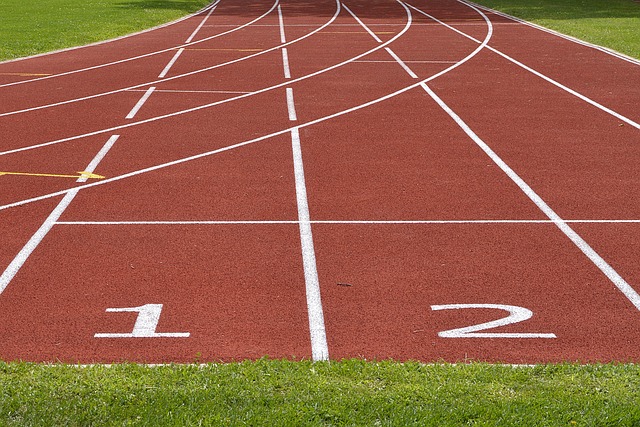Karachi Sports: 5-Year Injury Trends Across Teams Analyzed

In vibrant sporting city Karachi, a 5-year study employs advanced analytics to map injury trends acr…….
The Cyber Rhythm for Sports in Khi PK
Remain linked with the up-to-date Sports updates and innovations on sports.karachi-pakistan.com. Explore exclusive content.
Sports, a universal language that transcends borders, cultures, and generations, has captivated humanity for centuries. From ancient Olympic Games to modern professional leagues, sports have evolved into a multifaceted phenomenon, influencing not just physical well-being but also social dynamics, economies, and technological innovations. This article aims to embark on an in-depth journey through the world of sports, exploring its various facets, global impact, economic significance, and future potential. By delving into these aspects, we will uncover why sports are more than just a game—they are a cultural tapestry woven with threads of competition, camaraderie, and community.
Definition: Sports, in its essence, refers to physical activities or games that involve skill, strategy, and often competition. It encompasses a diverse range of disciplines, from team sports like soccer and basketball to individual pursuits such as tennis and track and field. This broad category also includes traditional, indigenous games practiced by various communities worldwide.
Core Components:
Historical Context: The history of sports is as vast as its disciplines. Ancient civilizations like Greece, Egypt, and China played significant roles in shaping the early sports landscape. The Olympic Games, originating in 776 BC in Olympia, Greece, are a notable example, featuring events like sprinting, wrestling, and chariot racing. Over time, various traditional games and sports evolved, leading to the modern era where structured leagues and international competitions have become the norm.
Significance: Sports play a pivotal role in society by:
Sports have become a powerful global force, shaping cultures, economies, and communities worldwide. Its influence is evident in:
| Region | Impact and Trends |
|---|---|
| North America | The NFL (National Football League) and NBA (National Basketball Association) dominate professional sports, attracting a massive global audience. E-sports, combining gaming with competitive play, is experiencing exponential growth. |
| Europe | Soccer (football) reigns supreme, with events like the UEFA Champions League drawing record crowds. The Olympic Games also hold immense significance, bringing countries together in friendly competition. |
| Asia | With growing middle classes, sports like cricket (India, Pakistan) and basketball (China) are gaining immense popularity. The Asian Games and AFC (Asian Football Confederation) tournaments showcase regional talent on a global stage. |
| Africa | Traditional sports like traditional Nigerian martial arts and South African rugby have merged with modern international competitions. The 2019 Africa Games highlighted the continent’s athletic prowess in various disciplines. |
| Latin America | Soccer is deeply ingrained in the culture, with countries like Brazil and Argentina producing world-class talent. The FIFA World Cup has a massive following across the region. |
Key Global Trends:
The sports industry is a behemoth, generating substantial economic activity across various sectors.
Market Dynamics:
Investment Patterns:
Economic Impact:
Technology has been a game-changer in sports, enhancing performance, improving training methods, and transforming fan experiences.
Impactful Technologies:
Future Potential:
Sports governance involves a complex web of policies, regulations, and legislative frameworks to maintain fairness, safety, and integrity.
Key Governance Bodies:
Key Policies and Regulations:
Despite its widespread appeal, the world of sports faces several challenges and criticisms that require attention and innovative solutions.
Main Challenges:
Proposed Solutions:
Case Study 1: The Rise of Women’s Soccer
The global rise of women’s soccer is a testament to the power of sports in fostering gender equality and community engagement. In the past decade, countries like the United States, Germany, and Japan have dominated international tournaments, attracting record television audiences. This success has led to increased investment, better facilities, and more opportunities for female athletes worldwide. The 2019 FIFA Women’s World Cup final, watched by over a billion people globally, highlighted the sport’s growing appeal and potential to break down gender barriers.
Case Study 2: Olympic Legacy: The Impact of Tokyo 2020
The 2020 Tokyo Olympics, postponed due to COVID-19, showcased the transformative power of sports events on host cities. Beyond athletic achievements, the Games left a lasting legacy in Japan, including:
Case Study 3: eSports Revolution
The emergence of eSports (electronic sports) as a global phenomenon challenges traditional notions of sports. With professional gaming teams competing in titles like League of Legends and Counter-Strike: Global Offensive, eSports has gained mainstream recognition. Major tournaments offer record prize pools, drawing thousands of viewers online. This growth provides opportunities for diverse talent pools, especially among younger generations, and raises questions about the future inclusion of eSports in the Olympic Games.
The sports industry stands at the precipice of significant growth and transformation, with several emerging trends shaping its future landscape.
Potential Growth Areas:
Emerging Trends:
Sports is more than just a game—it’s a symphony of movement, passion, and culture that transcends borders. From its ancient origins to the modern global stage, sports has evolved into a powerful force shaping societies and connecting people worldwide. This article has explored various facets of sports, from its historical significance to technological advancements, policy challenges, and future prospects.
As we look ahead, sports stands at a crossroads, facing both opportunities and obstacles. By embracing innovation, promoting inclusivity, and prioritizing sustainability, the world of sports can continue to inspire, unite, and transform lives on a global scale. The journey of sports is an ongoing tapestry, constantly weaving new threads of competition, camaraderie, and community.
Q: How does sports contribute to national identity?
A: Sports play a significant role in shaping national identities by providing a shared cultural experience. International sporting events bring countries together, fostering a sense of pride and nationalism while also promoting understanding and respect for diverse cultures.
Q: What is the economic impact of hosting major sporting events?
A: Major sporting events like the Olympics or FIFA World Cup have substantial economic spin-offs for host cities and countries. These include direct revenue from ticket sales, broadcasting rights, and tourism. Indirectly, they stimulate local economies through infrastructure development, business growth, and job creation.
Q: How can sports promote gender equality?
A: Sports has the power to challenge gender stereotypes and promote equality by providing women and non-binary individuals with equal opportunities for participation and leadership. Successful female athletes serve as powerful role models, inspiring the next generation of women to pursue their sporting dreams.
Q: What are some innovative ways sports organizations are going green?
A: Sports organizations are adopting sustainable practices in various ways: eco-friendly stadium designs, renewable energy use, plastic waste reduction, and implementing carbon-neutral initiatives for events. These efforts contribute to a more environmentally conscious sports industry.
Q: How does eSports differ from traditional sports?
A: eSports involves professional gaming competitions in video games, often played by specialized teams. While it shares some similarities with traditional sports, like competition and fan engagement, eSports operates in the digital realm, attracting a younger audience and challenging conventional notions of sports.

In vibrant sporting city Karachi, a 5-year study employs advanced analytics to map injury trends acr…….

Athletic performance in Karachi is a dynamic, ever-changing landscape mirroring the bustling city�…….